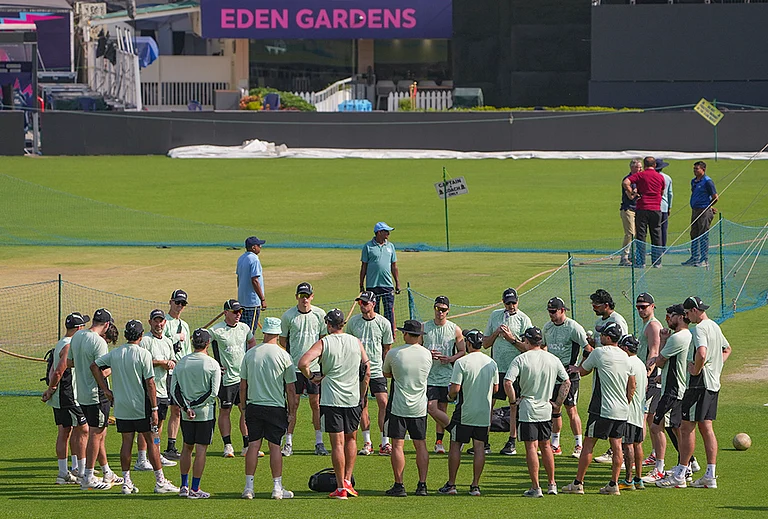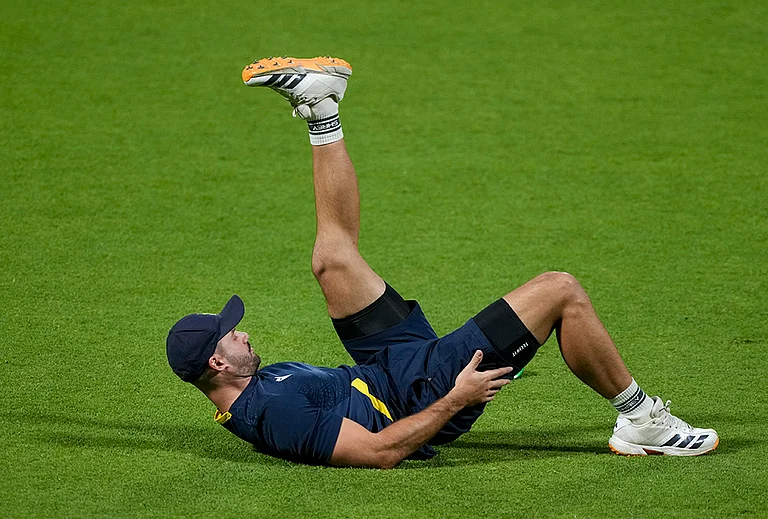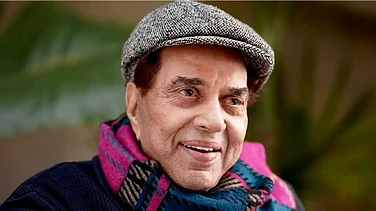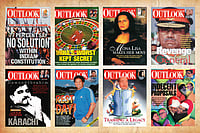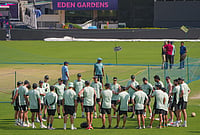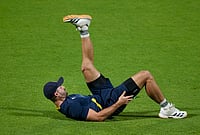The cloying concerns of Mrinalini Sarabhai's Radha , the contrived contemporaneity of Mallika Sarabhai's Chandalika , the drums of Louis Banks seemed like so much noise and nothing compared to this play that the audience in Gandhi's city watched in shocked recognition. Where but in this communally riven city was Khodiaji's message of impending apocalypse more relevant? That ethnic, social, political, sexual frenzy, whether in Ayodhya or Albania, is not the handiwork of governments but of common men: unwilling, unable to make the connection between their random prejudices, coded reflexes, petty animosities, subliminal hates.
Khodiaji, an executive with DSJ TV, in this maiden scriptwriting venture establishes these connections through a plot that knits fragments of memory, literature, life, our everyday callousness into a blistering indictment of our complicity. Merchant—an exporter, part-time actor with Naseeruddin Shah's Motley Theatre Group and playwright Satyadev Dubey's group and long-time theatre associate of Khodiaji—creatively collaborated in formulating Khodiaji's, response to the post-Ayodhya communal riots. It took her two years to write, they performed six times to lukewarm audiences at Bombay before they brought it, with some trepidation to Ahmedabad. To an audience that was to give them a standing ovation
It was a play about fragments of memories, each of which unfolded in cleverly devised successive frames. Man and woman in white, votaries of peace both, turn violent over the struggle to put a vermilion mark on Gandhi'sportrait first, even as vaishnav jana plays and temple bells clang frenetically offstage. A godman declaims while in the background a puppeteer-politician silently orchestrates, acclaims: "...the expression of hate frees the mind of all negativity...so hate for the sake of love. Kill for the sake of life. Kill, kill, kill thy neighbour." A tranquil Bach symphony plays through the diatribe. Oblivious. Like us "little men" who Khodiaji, like Anne Frank, considers"just as guilty" for the daily horrors that punctuate our lives.
Incisive, insidious, innocent images flash past. Two kids quibble over their received truths. The boy turns abusive: "My mother says God can never love anybody from your religion." Girl beats boy, image turns into one of war with light and sound effects. Lines from Yeats' Second Coming, "the blood dimmed tide is loosed, and everywhere, the ceremony of innocence is drowned", are heard above the melee. In a five-star restaurant a couple smoke cigarellos, feed off lobster thermidors, talk of Monte Carlo. And monsters. "The ride from the airport was terrible...almost got killed by rioters." Woman, fashionably vegetarian, kind to animals, offers instances of her empathy for her kin. "I gave away 50 pairs of tights for the poor riot victims." But she can't resist some tee hee amid the tsk, tsk. "Not that I wore them: flares are in fashion now!" Common men, every man, these. Not culpable?
Cameos next. Aziz meets Rekha. To thank her Hindu family for their kindness, say goodbye. Taut bodies, tremulous visages evoking histories, articulating a lament for loves and times that belonged to another time. Serb mercenary in Sarajevo is blase, cocky. "I killed many people in Krajina two years ago. The war had not started then. But we had. Have an ice-cream?" Man brutally rapes woman, spread eagled, cadaver-like on a table as he sobs out Yeats' Ash Wednesday prophecy of his certain doom. "Because I do not hope to turn again...I no longer strive towards such things", ending in a crescendo of despair: "I know that time is always time, and place is always and only place.... I renounce the blessed face, and renounce the voice.
The play does not shut out the voice of hope though, which Khodiaji offers through her quiet reading of a luminous passage from Anne Frank. "In spite of everything I still believe people are really good at heart.... I must uphold my ideals for perhaps the time will come when I shall be able to carry them out."
Not much. Two actors, a dupatta, a table, a chair, two torches and a shining integrity were all that was needed to stage this theatrical tour de force that left many in the audience mute and moist-eyed. In that lies a message and a moral for all performers. And for organisers of cultural festivals in Ahmedabad and all over the country.





